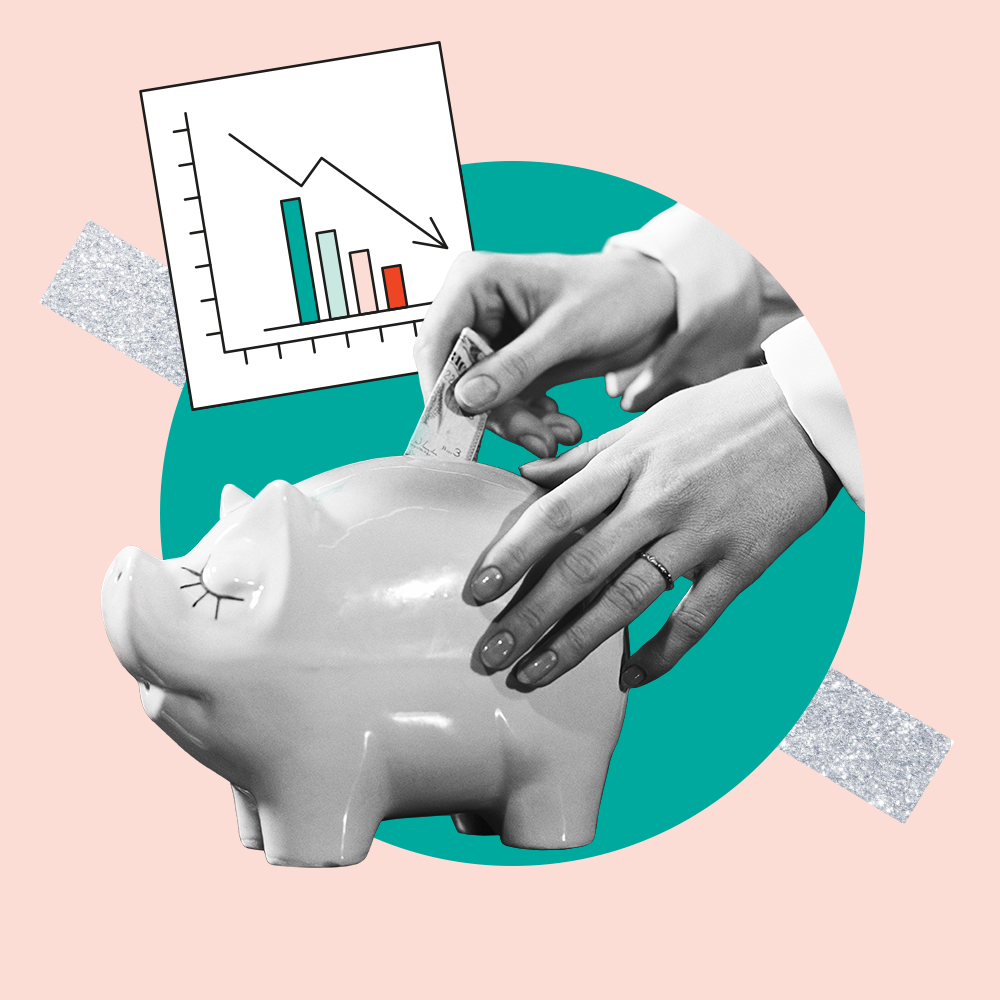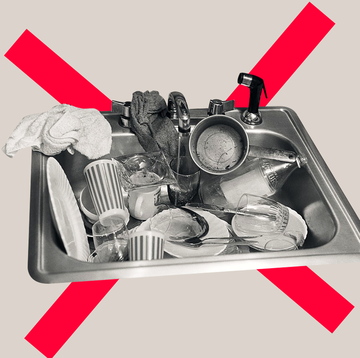When there’s a stock market dip, you may get 1 million push notifications, find yourself on the verge of a full-on paper-bag-breaths freak-out, call your mom, and scream, “What is haaappeniiinggg?!”
Yes, hello, this is 2020.
To help you figure out what’s actually worth freaking out over (and to calm your financial nerves), we enlisted some experts. The verdict? Don’t touch your funds! More answers to your not-dumb money-related questions ahead.
Just how f*cked are we really? How much do I have to freak out?
“Deep breaths,” says certified financial planner and Tally spokesperson Bobbi Rebell. “Take a step back and look at the big picture: If you are young, you have so many years ahead of you for your money to grow.” Do you really need to cash in your 401(k) tomorrow? Were you banking on your investments to get you through the next rent cycle? If the answer is no, then you don’t really need to worry about what your Betterment statement says at the end of the day (and TBH, don’t even look at it, says Erin Lowry, author of Broke Millennial Takes on Investing). “The market has crashed before and it has rebounded before,” says Lowry.
Should I panic and pull all my money out now?
No!!! “Historically, that has proven to be one of the worst things to do,” says Rebell. “Many of the biggest one-day gains happen soon after a huge drop, so you definitely risk missing that.” Want to feel better about this call? Take a history lesson and check out what happened in 2008 during the Great Recession: “The people who freaked out in 2008 and pulled their money missed one of the biggest bull runs in market history,” says Lowry. If you leave your cash in the markets, you could end up making way more later.
Is there any value to investing in the stock market now with the hopes of an upswing in the opposite direction?
Do not go balls to the wall and throw everything you have into the market RTFN, says Lowry. Instead, plan to invest little by little at regular intervals so you can lower your risk. The one exception comes if you don’t have an emergency fund (that can be anywhere from three to six months of your usual living expenses). If you know your job might be at risk or you’re worried about paying for things like groceries for the next few months, put a pause on your usual investing deposits and rethink things after you rebuild your lil nest egg.
What is the circuit breaker stopping trading at 7 percent supposed to do? Should I be worried about that specifically?
“Think of it like a time-out,” says Rebell. “It’s a good thing that was put in place after a big market crash known as Black Monday in 1987. When circuit breakers work correctly, as they did today, it gives everyone time to assess the markets and keep them from free-falling.” (So, no, you should not be worried.)
If I don’t have investments, is there any reason to still be worried? Is my savings account in the bank in danger?
Money in your bank account will not be impacted by the stock market decline, says Rebell. (Bless.) But she cautions: “What you should worry about is debt. It might be tempting to reserve your cash and stop or lower payments on things like your credit-card debt. The best way to protect your finances when the market is volatile is to eliminate your high-interest debt, which will give your budget more breathing room for day-to-day expenses.” Basically, keep paying down your loans so you’ll be golden in the long term.

Jessica Goodman is the New York Times bestselling author of young adult thrillers They Wish they Were Us, They’ll Never Catch Us, and The Counselors. She is the former op-ed editor at Cosmopolitan magazine, and was part of the 2017 team that won a National Magazine Award in personal service. She has also held editorial positions at Entertainment Weekly and HuffPost, and her work has been published in outlets like Glamour, Condé Nast Traveler, Elle, and Marie Claire.












